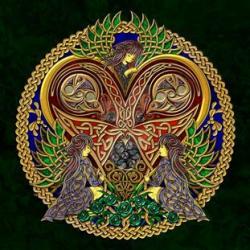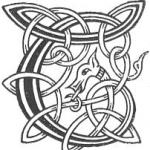The biblical understanding of sin can be best understood looking at the context in which the words used to describe sin are used in the bible. The use of over 20 different words between the Old Testament and New Testament speak to the need for a multi-faceted view of sin.
Very simply, sin is not simple. Many times, I have been told sin is simply wrong. But the Bible, from which we as Christians understand this concept does not declare it that simple. As such, we should not consider it so simple.
Sin in The Old Testament
Chata
This word occurs over 500 times in The Old Testament and literally means “To miss the mark”, as in shooting an arrow and missing the target. The concept here is not one of trying to hit the mark but actively doing things that would cause hitting the wrong mark, or sin. This type of sin is characterized by moral evil, ceremonial sin or idolatry. Examples include:
And Moses saith unto the people, `Fear not, for to try you hath God come, and in order that His fear may be before your faces — that ye sin not. -Exodus 20:20
among all this people [are] seven hundred chosen men, bound of their right hand, each of these slinging with a stone at the hair, and he doth not err. -Judges 20:16
Ra
This word, being used over 400 times in the Old Testament and carries a meaning of destruction or the cracking or breaking of something. It can mean a moral wrong or an action that can cause injury. Example include:
for God doth know that in the day of your eating of it — your eyes have been opened, and ye have been as God, knowing good and evil. -Genesis 3:5
and Er, Judah’s first-born, is evil in the eyes of Jehovah, and Jehovah doth put him to death. -Genesis 38:7
And I — I have not sinned against thee, and thou art doing with me evil — to fight against me. Jehovah, the Judge, doth judge to-day between the sons of Israel and the sons of Ammon. -Judges 11:27
Taah
This word means to “go astray” like from a path. However in context we must understand this is a deliberate choice to leave the path, not an accident or mistake. There is understanding that the person who chooses this may not realize it is sin, but that does not change the fact that it is sin. Examples are:
And when ye err, and do not all these commands which Jehovah hath spoken unto Moses -Numbers 15:22
The wicked have been estranged from the womb, They have erred from the belly, speaking lies. -Psalm 58:3
Rasha
This word is rarely used, but describes sin as wicked and the direct opposite of righteous. Example:
Do I at all desire the death of the wicked? An affirmation of the Lord Jehovah, Is it not in his turning back from his way — And he hath lived? -Ezekiel 18:23
Pasha
This word describes open rebellion, or as transgression against one. Example:
Hear, O heavens, and give ear, O earth, For Jehovah hath spoken: Sons I have nourished and brought up, And they — they transgressed against Me. -Isaiah 1:2
Awon
This word connotates iniquity and guilt or shame. Example:
Hear, O heavens, and give ear, O earth, For Jehovah hath spoken: Sons I have nourished and brought up, And they — they transgressed against Me. -1 Samuel 3:13
Shagag
This word describes the sin of knowing what one is doing is wrong and assigns responsibility to that person. It also implies the law breaker must answer for the broken law. Example:
Speak unto the sons of Israel, saying, When a person doth sin through ignorance against any of the commands of Jehovah [regarding things] which are not to be done, and hath done [something] against one of these -Leviticus 4:2
Asham
Guilt before God sums up the concept of this word. Almost always, the word is used in conjunction with the tabernacle or the ritual temple. Example:
Or when a person cometh against anything unclean, or against a carcass of an unclean beast, or against a carcass of unclean cattle, or against a carcass of an unclean teeming creature, and it hath been hidden from him, and he unclean, and guilty; Or when he cometh against uncleanness of man, even any of his uncleanness whereby he is unclean, and it hath been hidden from him, and he hath known, and hath been guilty -Leviticus 5:2-3
The Old Testament view of sin shows us that sin is multi-faceted and effects the person that commits sin, the community and people in which sin occurs and effects the relationship between God and humanity. Sin is a violation of the very nature of God and the natural world. As western people we focus on the missing of the mark. We must also pay attention to the mark of sin we actually hit and its effects.
Sin in The New Testament
Kakos
Meaning bad behavior or can mean bad as in a physical disease. Example:
for from within, out of the heart of men, the evil reasonings do come forth, adulteries, whoredoms, murders -Mark 7:21
for a root of all the evils is the love of money, which certain longing for did go astray from the faith, and themselves did pierce through with many sorrows -1 Timothy 6:10
Poneros
This is a Greek term for moral evil. It also is a descriptor word when discussing evil spirits (demons). Examples:
And the unbelieving Jews, having been moved with envy, and having taken to them of the loungers certain evil men, and having made a crowd, were setting the city in an uproar; having assailed also the house of Jason, they were seeking them to bring [them] to the populace -Acts 17:5
then doth it go, and take to it seven other spirits more evil than itself, and having entered, they dwell there, and the last of that man becometh worst than the first. -Luke 11:26
Asebes
This word means godless apostates and is used mainly in 2nd Peter and Jude:
And if the righteous man is scarcely saved, the ungodly and sinner — where shall he appear? -1 Peter 4:18
Enochos
This word describes a crime whose penalty should be death:
Ye heard the evil speaking, what appeareth to you?’ and they all condemned him to be worthy of death -Mark 14:64
Hamarita
This word is the most used when describing sin in the New Testament, over 200 times. The writers used this word as an inclusive word for sin. This also means missing the mark with the understanding of hitting the wrong mark.
Adikia
This word refers broadly to general unrighteous conduct. It is used of the unfaithful, of actions and of money.
for revealed is the wrath of God from heaven upon all impiety and unrighteousness of men, holding down the truth in unrighteousness. -Romans 1:18
and I say to you, Make to yourselves friends out of the mammon of unrighteousness, that when ye may fail, they may receive you to the age-during tabernacles. -Luke 16:9
and in all deceitfulness of the unrighteousness in those perishing, because the love of the truth they did not receive for their being saved, -2 Thessalonians 2:10
Anomos
The word is typically translated iniquity, its true meaning is closer to the western understanding of lawlessness.
the Son of Man shall send forth his messengers, and they shall gather up out of his kingdom all the stumbling-blocks, and those doing the lawlessness -Matthew 13:41
Parabates
Relating to specific violations of law, literally describing a transgressor or one who has broken the law.
thou who in the law dost boast, through the transgression of the law God dost thou dishonor?
Agnoein
This refers to ignorant, but willful worship of something other than God.
or the riches of His goodness, and forbearance, and long-suffering, dost thou despise? — not knowing that the goodness of God doth lead thee to reformation!
Planao
To intentionally go astray, this word describes more of a willful intention, rather than an accident
for ye were as sheep going astray, but ye turned back now to the shepherd and overseer of your souls. -1 Peter 2:25
Paraptoma
The concept of this type of sin is like a falling behind or falling away from righteousness, used most often by Paul:
But, not as the offence so also [is] the free gift; for if by the offence of the one the many did die, much more did the grace of God, and the free gift in grace of the one man Jesus Christ, abound to the many; and not as through one who did sin [is] the free gift, for the judgment indeed [is] of one to condemnation, but the gift [is] of many offences to a declaration of `Righteous, for if by the offence of the one the death did reign through the one, much more those, who the abundance of the grace and of the free gift of the righteousness are receiving, in life shall reign through the one — Jesus Christ.
So, then, as through one offence to all men [it is] to condemnation, so also through one declaration of `Righteous’ [it is] to all men to justification of life; for as through the disobedience of the one man, the many were constituted sinners: so also through the obedience of the one, shall the many be constituted righteous. And law came in, that the offence might abound, and where the sin did abound, the grace did overabound, -Romans 5:15-20
Hypocrisis
The concept of this word in regard to sin is threefold. First it brings the idea of false interpretation, next false acting or pretending as well as the person knowing what is being spoken is false, yet tells it is if it were the truth.
in hypocrisy speaking lies, being seared in their own conscience, -1 Timothy 4:2
The New Testament concept of sin broadens, in part because the Greek language is more broadened and descriptive than Ancient Hebrew. But the New Testament gives us the understanding of a standard of behavior for believers, that true sin is open rebellion against God and that humankind has been given the ability to understand the difference between good and evil, and as such is accountable for evil actions. Lastly there appears an intent of the sinner made clear in the New Testament.
Within the full context of scripture, a sin is truly committed when a person knowingly has intent to offend God, destroy life or hurt others.















